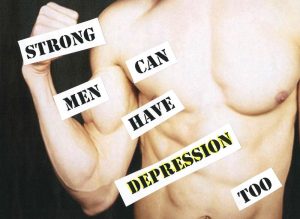Perception and Self-Stigmatization
I certainly don’t need to convince any of my readers that mental health stigma is a living, breathing entity that can exist in all walks of life. But ask yourself just how much of that stigma is created in our own minds due to our distorted perceptions of the world around us?
Although not my favorite doctor to quote, Dr. Phil has in fact said it best. “You wouldn’t care about what people think about you if you knew how little they did.’
This quote speaks volumes when it comes to people suffering from mental health and addictions issues. We have a tendency, not just as people with mental illness but as people in general, to believe that the rest of the world sees us the same way we see ourselves. Thankfully, that is not the case.

People Don't View You the Same Way That You View Yourself
As a sufferer of major depression, in remission for quite some time, I can certainly attest to the fact that I used to believe that everyone else viewed me in the same light that I viewed myself. I felt as though my failures and issues were displayed quite broadly on my forehead and that everyone who crossed my path would immediately be able to tell just how mentally unbalanced and unsure of myself I was.
As someone who has also had more than his fair share of anxiety related concerns, I also used to believe that when I entered a room, everyone was looking at me and judging me. Of course, that may be true in certain situations, but for the most part, people are far more concerned about how they are acting and looking and couldn’t care less about how you look or act. No matter how depressed and anxious you may be on the inside.
Bringing Perceptions in Line With Reality
That is why perception is truly the key when it comes to stigma. If we perceive the rest of the world to be treating us differently, seeing only our illness and not taking us for the person underneath, we will subconsciously start behaving in a way that turns those perceptions into realities.
Since I came out with my own story of drug-induced psychosis, major depression, mania and anxiety in my memoir ‘Completely in Blue: Dispatches from the Edge of Insanity’ I have realized that a lot of the perceived stigma is directly related to how I present my story to others. If I relay it in a way that shows that ‘yes, I have gone to Hell and back but I’m a living example of how someone can overcome mental illness’ people respect me and are intrigued and want to understand instead of judge. I can imagine that if I relayed my story in a different manner, wrought with self-pity and defeat, it may lead to being much more heavily stigmatized.
Stand Tall, Stand Loud and Stand Proud
People only have the information you give them in order to create an opinion. Be aware of the information you are providing. People, in general, don’t want to stereotype mental illness, but if you give them no new information that goes against their beliefs, they will have no other choice.
The key to breaking down the barriers of stigma lies in us; no one else.
When you talk about it, don’t be ashamed. Be proud that you are a survivor. And hold your head up high.
The Completely in Blue website is here. Chris is also on Google+, Twitter and Facebook.
APA Reference
Curry, C.
(2012, June 18). Perception and Self-Stigmatization, HealthyPlace. Retrieved
on 2026, March 3 from https://www.healthyplace.com/blogs/survivingmentalhealthstigma/2012/06/perception-and-self-stigmatization
Author: Chris Curry
Thank you for sharing this, as we, the Client Empowerment Council (CEC) at The Royal are hosting a Public Lecture with regards to Stigma, mainly Self-stigma (Our Failures and Successes) on the 28th of February, 2013. This information has benefited me as a person as well as helping me as the Chair of the CEC, to enhance our lecture.
Hi Brigitte,
Thank you so much for your comment. I am very happy to hear of this lecture and I hope to attend.
If you want to contact me directly with any questions, please feel free at completelyinblue@gmail.com
Kind regards,
Chris
[...] And then we become victims not only of stigma, but of self-stigma. [...]